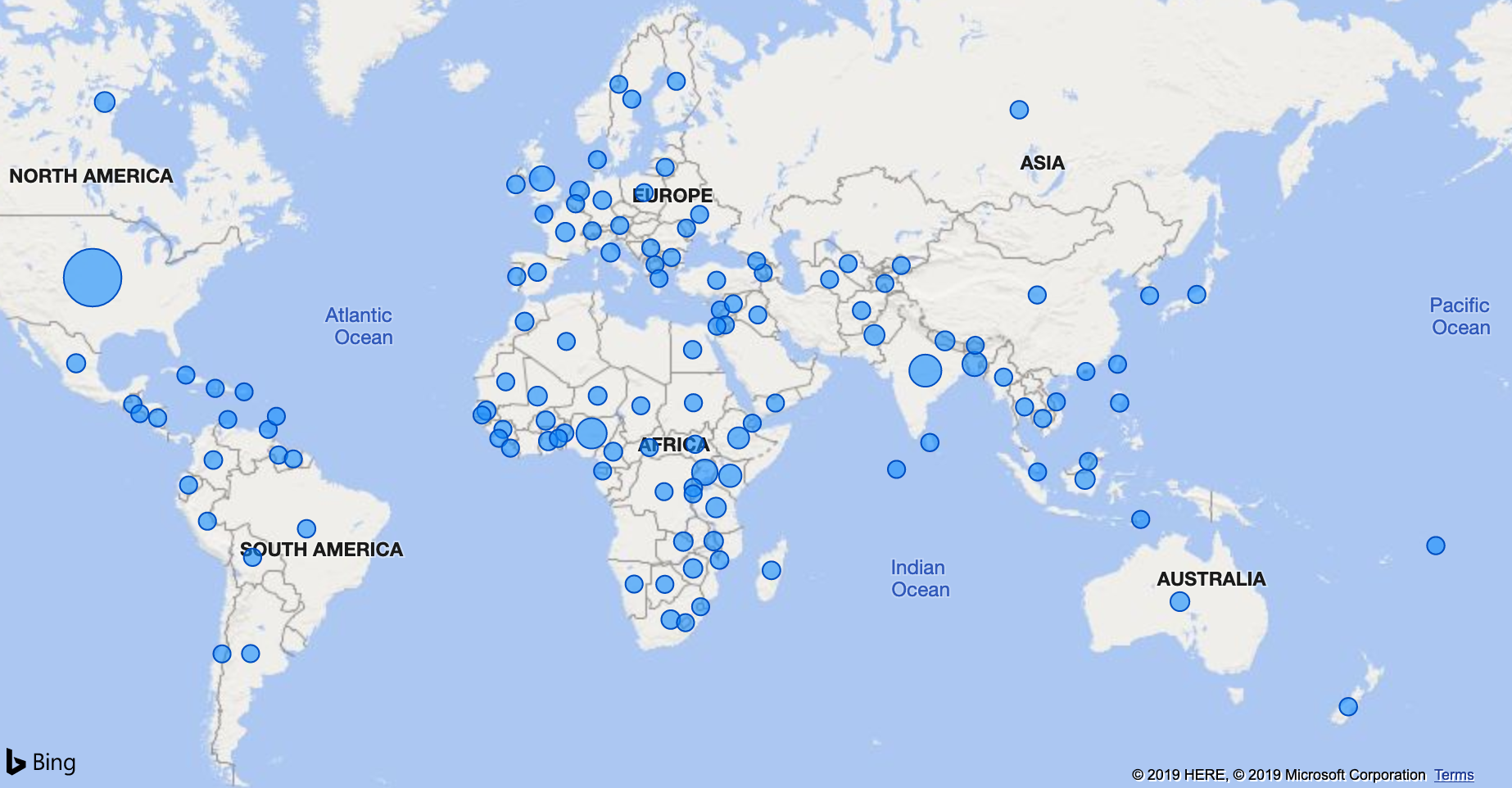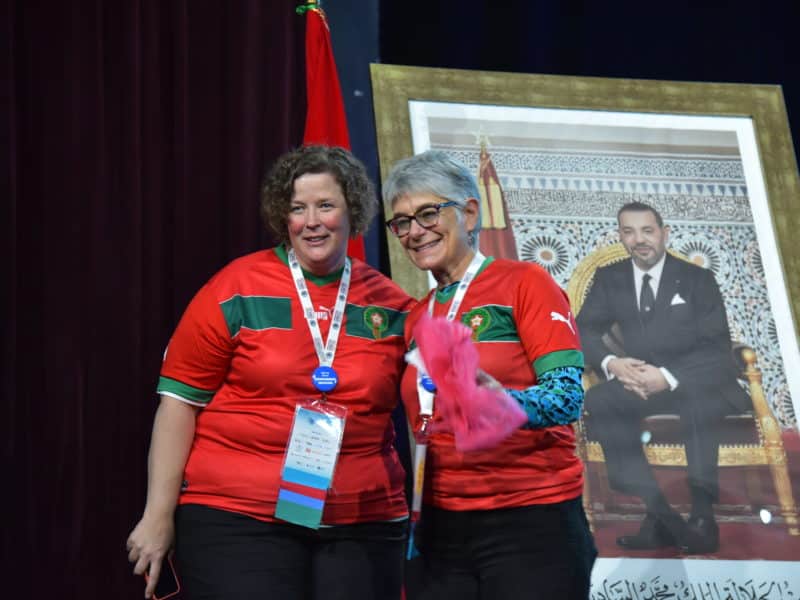Organizers of the 2020 International SBCC Summit announced more than 2,100 abstracts/proposals from 109 countries were submitted for consideration for the event scheduled for March 30 to April 3 in Marrakech, Morocco.
That is nearly double the 1,266 abstract submissions from 95 countries received for the 2018 SBCC Summit in Nusa Dua, Indonesia. Organizers also noted the number of abstracts submitted in French and in Spanish increased from the 2018 Summit.
“The overwhelming number of submissions is terrific affirmation that there is a real interest in coming together to collaborate on the next big ideas in social and behavior change communication and in furthering the field,” says Susan Krenn, executive director of the Johns Hopkins Center for Communication Programs and head of the organizing Secretariat for the Summit. “We are particularly heartened to see a diversity of topics and regions of the world represented in these abstracts and proposals.”
Of the 109 countries represented by those who submitted abstracts, 81 percent came from low- and middle-income countries as defined by the World Bank.
More than 1,100 SBCC practitioners from around the globe volunteered and are now working to review abstracts/proposals and select those representing the best of what the field of social and behavior change communication has to offer. Those who submitted will learn whether they were accepted in January.
The 2020 Summit is expected to draw more than 1,500 SBCC practitioners and will provide the opportunity to connect with decision makers at NGOs, government officials and academics from major institutions. The event promises face-to-face time with creative thinkers and innovators working to engage communities to make change in family planning, climate crisis, malaria, health equity and so much more.
The vision for the 2020 Summit is “Strength in Diversity.” Three main themes will be “Catalyzing Transformational Change on Agendas of Urgency,” which considers such topics as climate crisis, health access and equity and humanitarian efforts; “Future Forward,” a look at what we have learned from the past and what to take going forward; and “Connecting the Dots,” which explores ways to further increase collaboration, learning, skills sharing and capacity building, creative collective action and sharing within the field.
Registration is open and the early-bird rate is still available. A limited number of scholarships are available and the application process is open.





